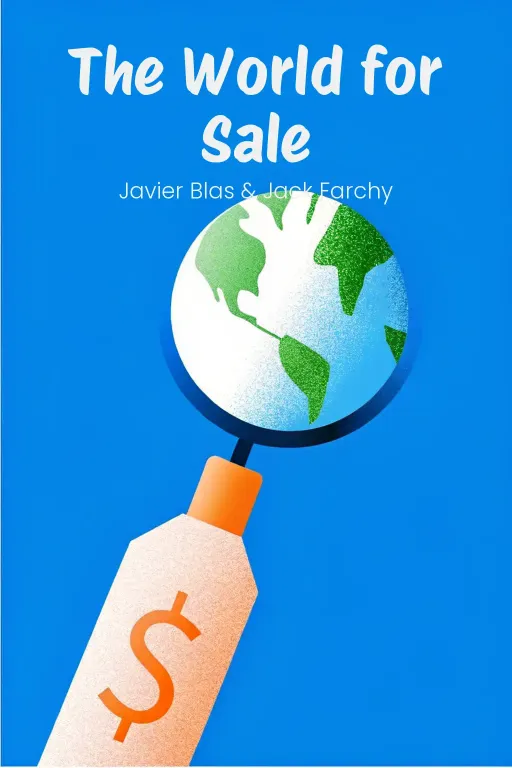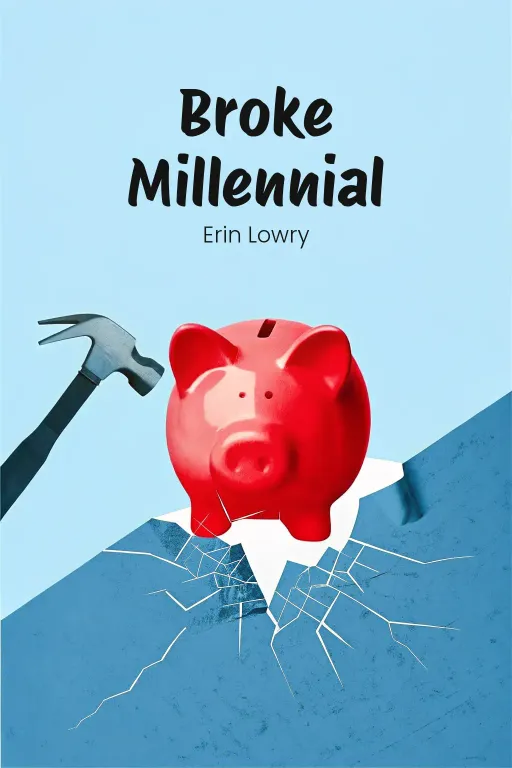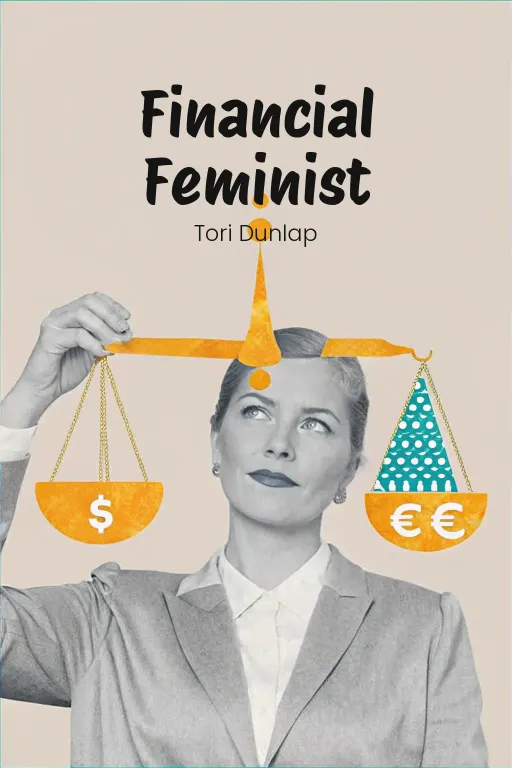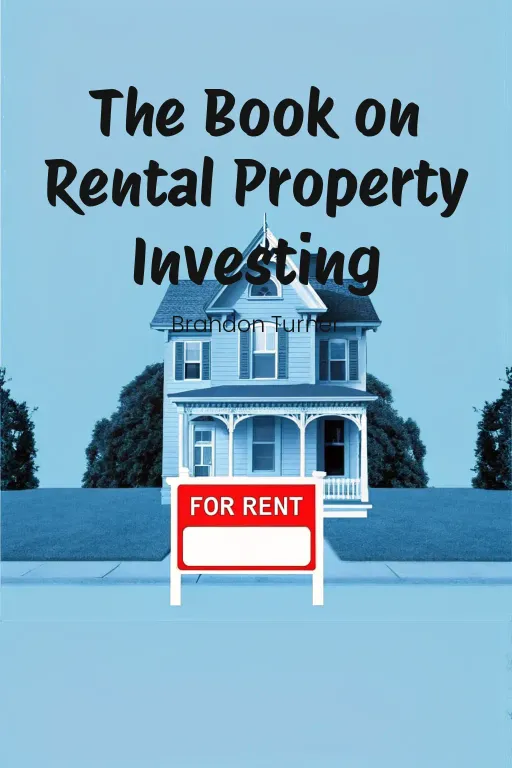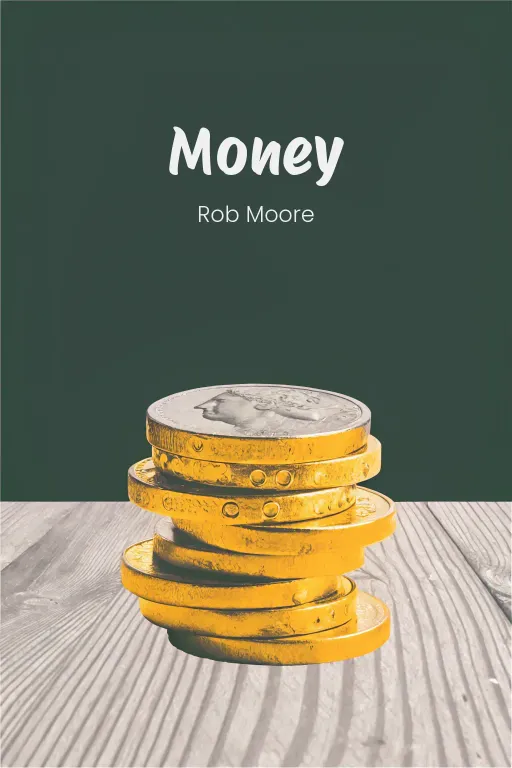
Money Sanity: Finances, Feelings, & Future
Podcast by Let's Talk Money with Sophia and Daniel
Know More, Make More, Give More
Introduction
Part 1
Daniel: Hey everyone, welcome back to the show! Today, we're tackling something we all deal with: money. Sophia, be honest, when was the last time you “weren't” stressed about money? It feels like it dictates so much of our lives, doesn't it? Sophia: You're not wrong. It's like we're all fumbling through some bizarre game, and the rules are constantly being rewritten. So, Daniel, what's the miracle cure today? Another boring lecture on budgeting apps? Daniel: Nope, nothing like that. We're diving into Laura Whateley's Money: A User's Guide. It's really aimed at anyone under 40 who's trying to figure out finances in this… well, let's just say, “interesting” economic climate we're in. It’s super practical, tons of advice, covering everything from renting to, ugh, pensions. Plus, it connects the dots between your money and your, you know, mental well-being. Sophia: Okay, so it's not just about scrimping and saving until you’re dust, but actually understanding “why” we make the financial choices we do. And maybe confronting some of the baggage that comes with it? Interesting. Daniel: Precisely! In this episode, we're breaking it all down, step by step. First, the basics: budgeting, saving, all that essential stuff. Then, we get deeper, exploring how financial stress affects our relationships and our heads, really. And finally, we're pushing boundaries with ethical spending and how your wallet can actually impact the world. Sophia: So, a complete roadmap, huh?—from just scraping by to actually using your money to make a difference. Alright, let's see if this guide is as good as it sounds.
Personal Finance Fundamentals
Part 2
Daniel: You know, speaking of foundations, let's dive into personal finance fundamentals, right? It's like building a house, Sophia. You wouldn't just slap a fancy roof on it without laying the bricks first, would you? That foundational knowledge is absolutely crucial before we even think about getting into things like ethical investing or sustainable spending. Sophia: Yeah, okay, fair point. But most people don't even know where to start with those bricks. So, is step one all about budgeting, then? Or, are we going to hit everyone with another one of these 50/20/30 rules that just completely falls apart when, you know, they live in a city where rent eats up like 70% of their income? Daniel: That’s a totally valid point, and Laura Whateley actually acknowledges in the book that a one-size-fits-all approach really doesn’t work. But, budgeting is where it all starts. Think of it as just knowing where your money is going before you start telling it where to go. She suggests using tools like Monzo or Starling to automatically track your expenses, or, if you're feeling more intentional, there's the Japanese Kakeibo system. It's more than just numbers. It dives into why you spend and how it affects you emotionally. Sophia: Kakeibo? So, now my budget is, like, Marie Kondo-ing my wallet? Is that what's happening here? Daniel: <Laughs> In a way, yes! It makes you reflect on things—not just on what you spend, but on whether those expenses actually align with your goals or values. Say you realize you're spending hundreds a month on takeout because it feels like a small luxury after a hard day. The Kakeibo system can help you identify that kind of pattern and rethink your choices without, you know, any feeling of guilt. Sophia: That actually kinda makes sense. Though, the thought of actually writing everything down physically sounds a little... tedious, honestly. Daniel: Yeah, I get that. That's where modern tech can step in! Use an app, if you prefer automation, but the thing to remember is that awareness is really the key thing. Even adopting parts of the 50/20/30 rule can kickstart the momentum. Let's say rent takes up 50% of your income. Then, just focus on saving 5–10%. Small steps like that compound over time. Sophia: Got it. Baby steps towards, you know, not being broke. So, what about saving itself, then? I mean, emergency funds sound nice in theory, but realistically, how does someone even start building one of these things if they're already juggling bills and barely making ends meet? Daniel: That's when setting an achievable initial goal really comes in handy. The book emphasizes aiming for, like, a £1,000 safety net. Now, it's not quite the full three-to-six months of expenses that financial advisors always love to quote, but it is a start. And honestly, that amount can be a total game-changer in a lot of emergencies — avoiding payday loans or credit card debt, for example. Sophia: Okay, makes sense. So where do you park those savings, though? Because, let's face it, a jar under the mattress isn't exactly going to yield any returns. Daniel: Right! Of course, each savings vehicle has its pros and cons. For an emergency, accessibility should be your priority, so a high-interest savings account might be the best way to go. But for long-term goals, ISAs are amazing since the interest is tax-free. Automation's also your friend. Set up a direct debit so that you savings happen like clockwork. Sophia: Okay, so you save a chunk, stash it smartly, and then let auto-pilot do all the heavy lifting. But there's always a catch, right, Daniel? I mean, what's lurking in the shadows here? Daniel: Funny you should ask that! It's credit scores. Laura really dives into that tangled but obviously crucial web. Credit scores determine so much — whether you get approved for a mortgage, how much interest you'll pay, and even whether landlords trust you. Sophia: Ah, yes, the modern Scarlet Letter. So, let me guess... checking your score too often is one of those sneaky pitfalls, like caffeine withdrawal, but for future loans? Daniel: <Laughs> Close! Repeatedly applying for credit products can actually ding your score because the system flags it as, you know, a possible red flag. Whateley even shares a story about a couple who opened several joint accounts while they were preparing for a mortgage. They thought they were being financially savvy, but actually, their score took a hit as a result. Sophia: Great. So, even trying to get yourself organized can paint you as a risk. Is there a workaround? Daniel: Start with small wins: register on the electoral roll, keep your credit utilization low — under 30% ideally — and responsibly use a credit card. That actually means paying off the balances monthly to avoid interest while also building a solid track record. Sophia: Alright, so we've budgeted, saved, fixed that pesky score. But none of this really means much if debt's squatting in the corner like some uninvited guest. So, what's the strategy there? Daniel: Well, debt management all boils down to prioritization. You've got to tackle high-interest debt first – credit cards and payday loans – before moving to lower-rate options like student debt or mortgages. The book highlights tools like debt management plans for consolidating repayments and resources like StepChange that offer free advice. Sophia: Yeah, okay, makes sense. But I bet there's a stigma lurking under all of this. People hear "debt" and they imagine either failure or a lifetime of ramen noodles. Daniel: That's exactly why this book is so empowering. Debt doesn't have to be a life sentence. Leah's story really brings it home — she spiraled into debt during the manic episodes of her bipolar disorder, but by acknowledging the connection and just seeking structured solutions, she started to regain control. Sophia: So, debt isn't just math — it's emotional, even psychological. So what's the role of empathy in all of this? Do financial systems even care? Daniel: Sadly, they often don’t—at least not yet. But Whateley argues for a shift in perspective, urging institutions to consider your mental health when assessing someone's financial risk. And on a personal level, empathy means recognizing your own patterns and asking for help without shame when you need it. Sophia: Alright, Daniel, I see the vision. Master the basics, and you’re better armed to navigate the chaos. Seems like this foundational stuff is more about power than punishment.
Financial Well-Being and Relationships
Part 3
Daniel: So, with the groundwork laid, we can dive into how our financial choices ripple through other parts of our lives . And, well, this is where it gets fascinating – how money impacts not just “our” well-being, but our relationships too . It's this complex web, you know, connecting financial stress, mental health, and how we connect with each other . By addressing that, we can start bridging the gap towards some bigger ethical and emotional topics . Sophia: Ah, so you're saying money isn't just about spreadsheets – it’s a heart issue, right ? I mean, we've all heard money's a top cause of arguments in relationships – marriages, friendships, housemates, the works . But still, why does something as seemingly logical as, like, managing your finances become this emotional minefield ? Daniel: Because money is very rarely “just” logical . It's layered with our values, anxieties, and, heck, even past traumas . Let’s just start with the emotional impact of straight-up financial stress . StepChange estimates something like 3.3 million people in the UK are in so much debt that it impacts their ability to actually function . And that kind of stress doesn’t just sit there; it spills over into everything else . Take Leah’s case, for example . She’s battling bipolar disorder, and would go through manic episodes where she just spent impulsively . The result? Mounting debt, crippling anxiety, and just this debilitating cycle of instability . Sophia: I mean, that's heartbreaking, but also, sadly common, isn’t it ? People always think, "Why didn't they just control themselves?" But you're saying it's way more complex than that, right ? Daniel: Exactly . Leah's story isn't about self-control; it's about how mental health and financial health are deeply intertwined . And here’s the key takeaway: Money isn't “just” math . For someone like Leah, the solution couldn’t be boiled down to just cutting up credit cards . It involved therapy, support networks, the whole shebang, and working with financial advisors . It’s this multidimensional problem that requires a multidimensional solution, right ? Sophia: So you're saying step one isn't just about crunching the numbers – it's about acknowledging the emotions tied to money . And I like the idea of creating space to talk about these issues, especially when people usually keep their financial struggles under wraps . But, you know, for someone who’s feeling completely overwhelmed by the stress, how do they even begin to dig themselves out ? Daniel: Well, openness is key . And I don’t mean oversharing on Instagram, I'm talking about reaching out to people who can “actually” help . Financial stress thrives in secrecy . Organizations like Citizens Advice Bureau or StepChange are there to provide judgment-free support . Even just confiding in someone close to you, or a therapist, that can really ease the burden . Honestly, the simple act of sharing can open the door to solutions . Sophia: Okay, here's a complication for you: finances in relationships . Because it's one thing to deal with your own money stress . But what happens when you're co-managing it all with someone else ? Isn't that like taking an already sensitive issue and then adding a layer of "Whose turn is it to pay the internet?" to it ? Daniel: Oh, absolutely . Co-managing finances is one of the most fraught areas of any relationship . Think about it, when partners don't have those really clear conversations about money, it creates a breeding ground for resentment . Instance, say one partner earns significantly less and struggles with contributing equally to the household expenses . Over time, that perceived imbalance can fester . Without open communication and a solid plan, it just breeds tension, doesn’t it ? Sophia: Right, so it's the classic mismatch . One person is up all night stressing about the heating bill, while the other's swiping for another weekend getaway . So how do couples stop this from turning into a giant mess ? Daniel: Well, the most successful couples approach finances as a team, not as rivals . Laura Whateley actually suggests creating a "spending plan," where contributions are based on proportional income rather than a straight 50/50 split . This, you know, levels the playing field, while also allowing each partner to still maintain autonomy over some personal funds . But the key thing is that it has to be built on “transparency” . Cards on the table about income, debts, savings and what your financial priorities are . Sophia: That would require, dare I say, regular money conversations . If there's one thing people probably hate more than budgeting, it's…meetings . So how do you make these talks less painful ? Daniel: Well, neutral ground and consistency are your friends, here . Scheduling regular "money check-ins" in a non-judgmental setting works wonders . These talks don't have to be all spreadsheets and expense reports, you know ? They should cover shared goals though, like saving for a trip or a house, and then resolving those day-to-day decisions . For example, maybe one person wants to prioritize savings, while the other feels really strongly about allocating more towards travel or experiences . The idea isn't to agree on “every” detail, but to understand, you know, where the other person is coming from . Sophia: Okay, but let's say the couples “still” can't meet in the middle . Is there some neutral referee for financial disputes ? Because I know couples who fight over who left the milk out, so I can only imagine how ugly it gets clashing over credit score strategies . Daniel: Well, interestingly enough, the book suggests considering a financial advisor in situations like that . Having a neutral third party can diffuse tension, facilitate productive dialogue, and create plans without blame flying around . Sometimes you need that perspective to remind both parties: It's not "me versus you," it's "us versus the issue ." Sophia: You know what else strikes me? Whateley touches on legal stuff for couples who aren't married . The whole ‘common-law marriage’ myth where people assume they have automatic rights over shared property . Turns out you could be living together for years, like, paying all the bills, and still have no legal claim if things go south . Daniel: Exactly . Cohabiting couples often operate under misunderstandings that can leave one partner incredibly vulnerable . Whateley suggests securing financial clarity, you know, with a cohabitation agreement . It’s essentially a legal document that protects each person's contributions in case of separation . And if property’s involved, a declaration of trust, similar to a prenup, ensures ownership proportions are crystal clear . Sophia: Sounds wildly unromantic, but when it comes to protecting yourself, love needs a bit of legal paperwork, doesn’t it ? It's better than fighting over who gets the couch later down the line... Daniel: <Laughs> Absolutely, it's the unglamorous yet crucial truth! At the end of the day, none of these ideas, whether for individuals or couples, hinge on perfection . It's all about trust, communication, and incremental steps . Relationships and finances alike really thrive on clarity and collaboration, don’t they ?
Ethical Finance and Sustainable Living
Part 4
Daniel: So, recognizing how much our money impacts everything around us naturally makes you think about lining up your financial decisions with what you believe in, right? That brings us to ethical finance and sustainable living. We talked about how money affects individuals and relationships - now we're looking at aligning our finances with our values to help society and the environment. Taking the conversation from just ourselves to the bigger world, that completes the financial empowerment journey. Sophia: Okay, so we’re not just getting our finances in order anymore, we’re also becoming watchdogs of our own wallets! But let me play devil's advocate here for a second – isn’t this kind of a luxury? I mean, isn’t it hard enough for most people to just stay afloat financially without having to make sure their investments tick every single moral box? Daniel: That’s a fair point, Sophia, but here’s the thing: ethical finance isn’t about being perfect or completely changing your budget overnight. It's about making informed choices where you can. Socially responsible investing, for example, isn't just about morals; it also makes financial sense. Companies with strong ESG – environmental, social, and governance – standards tend to be more resilient and sustainable in the long run. Sophia: ESG, huh? Sounds like the corporate version of a dating profile. “Doesn’t pollute the planet, treats workers well, promises transparency – swipe right?” But seriously, can sticking to these principles still get you good returns? Daniel: Surprisingly, yes! Research has shown that ESG-compliant funds often do just as well or even better than traditional ones. Companies that are committed to progressive policies tend to handle crises better, attract good people, and keep the public's trust. There’s a 2018 study by ShareAction that showed some pension providers in the UK had funds tied to industries like chemical weapons manufacturing – something most people would definitely want to avoid. So, aligning your money with your values isn’t just ethical; it’s actually strategic. Sophia: Chemical weapons? Yikes. That’s not exactly what you want your retirement fund quietly supporting. So, how do people even find out if their money’s caught up in that kind of mess? Daniel: That’s the tricky part - a lot of people don’t even know where their investments are going. But platforms offering ESG-focused funds are making it easier. You can even use robo-advisors, which mix tech efficiency with ethical filters. They make decisions simpler, so even beginners can invest in funds that focus on things like climate change, renewable energy, or social equity. Sophia: Robo-advisors sound intriguing. They're like those personal trainers who guilt you into making good choices, but digitally. What else can people do if they’re not quite ready to dive into investing? Daniel: Another simple but really effective step is switching to green energy suppliers. Companies like Ecotricity or Good Energy use renewable sources like wind or solar. Choosing green tariffs not only cuts your reliance on fossil fuels but also sends a strong message to the market. When demand changes, even traditional energy providers feel the pressure to offer more sustainable options. Sophia: So, choosing green energy isn’t just about saving the planet - it’s about flexing our economic muscles, showing companies what we care about. How about the cost? Do choices like this come at a premium? Daniel: Not necessarily, no. Green energy suppliers have become more competitive with their pricing; they often match or even beat traditional tariffs. Plus, a lot of them reinvest their profits back into renewable projects, so your bills are directly helping to expand green energy infrastructure. It’s a tangible way to have a broader impact without really changing your budget. Sophia: Fair enough. And consumer preferences are clearly shaking things up. I read recently that green energy tariffs are actually overtaking traditional energy plans in popularity across the UK. That’s collective influence in action. Daniel: Exactly! Those shifts really show how powerful individual choices can be. Just like ethical investing, choosing renewable energy shows how personal decisions ripple outward, influencing industries on a large scale. But it’s not just about energy or investments; it’s part of a bigger trend toward something called “ethical capitalism.” Sophia: Ethical capitalism does sound nice, even though it also sounds like an oxymoron. What exactly does it mean? Daniel: It’s a movement driven largely by younger generations like millennials and Gen Z, who “really” prioritize social and environmental responsibility in their financial decisions. Profits aren’t the only measure of success anymore. Look at investments aligned with the UN’s Sustainable Development Goals – they target issues like reducing poverty or improving education, and they’re gaining huge traction. There’s also the rise of institutions like Triodos Bank or Charity Bank, which only fund projects with a strong social impact, like affordable housing or green technology. Sophia: Right, so it’s about ditching faceless investing and putting your money into something that actually reflects what you believe in. But, aren't banks and businesses “really” changing, or is this just their way of slapping a green label on the same old thing? Greenwashing is a real thing, right? Daniel: Greenwashing is definitely a trap, unfortunately, but informed consumers can spot it; transparency is key. Ethical banks like Triodos provide detailed reports showing exactly where customer funds are going. And as demand for accountability grows, even mainstream banks are being forced to step up, offering things like green mortgages – where buyers of energy-efficient homes get better interest rates. Sophia: Mortgages that reward you for insulating your loft? That’s actually a good incentive. But let’s be real – some changes still feel “really” slow. How can people make sure they’re actually making a real impact while the big players catch up? Daniel: It’s about being patient but also persistent. Every choice you make – whether it’s investing in ESG funds, switching energy suppliers, or even banking with institutions that value transparency – helps to build momentum. Together, those actions redefine the financial world, pushing businesses to prioritize sustainable practices. Sophia: So, ethical finance “really” is a long-term game. It’s not just about protecting our own futures; it’s about shaping everyone’s future. Makes you wonder, if money’s such a powerful tool, why aren’t more people already doing this? Daniel: A lot of the time, it’s just about awareness and accessibility. That’s why financial literacy is so important. The more people learn about socially responsible investing, green energy, or ethical banking, the more they feel like they can actually make a difference. These things are out there; it’s just about knowing where to look. Sophia: And knowing that small steps “really” do matter. It's like running a relay race – the baton is passed when people see that every pound, every choice, plays a part in making that bigger change.
Conclusion
Part 5
Daniel: Okay, so let's wrap up our deep dive into Money: A User's Guide. We've covered the core stuff today. Budgeting, saving, taming debt, and getting a grip on those credit scores. But beyond that, we looked at how money messes with our heads and our relationships. Communication and a little empathy go a long way there, right? Then, zooming out, we hit ethical finance and sustainable living, showing how what we do with our cash can actually, you know, change the world. Sophia: So, if I'm hearing you right, it's not just about the digits in your bank account. It’s about what you value, who you are, and how you want to live. From squirreling away an emergency fund to finding a bank that doesn’t fund, say, the next apocalypse. Small stuff, big impact. It's all connected. Daniel: Precisely! Financial literacy isn’t about being perfect or striking it rich overnight. It's about taking back the reins, making sure your money lines up with what “really” matters to you, and building a future that feels aligned. So, the question now is, what's one tiny thing you can tweak today to nudge yourself toward that future? Sophia: And look, whether it's drawing up a budget, automating your savings, or switching to a green energy provider, remember that progress isn't always smooth sailing. In fact, most of the time, it isn't. It's about sticking with it, one step, one pound, one decision at a time. Daniel: Exactly. I couldn’t agree more, Sophia. Thanks for joining us, everyone. Here’s to getting on top of your finances, and even more importantly, your mindset. Catch you next time!

